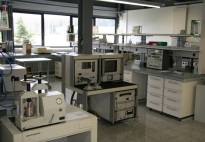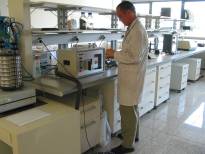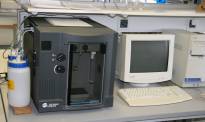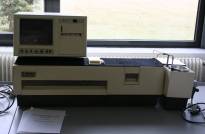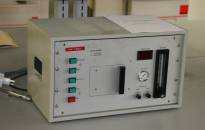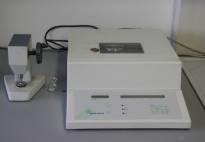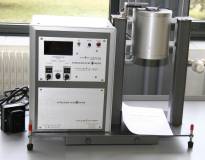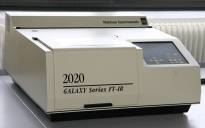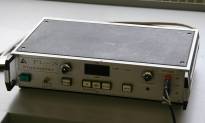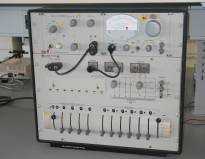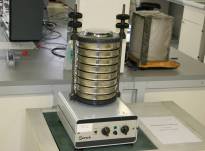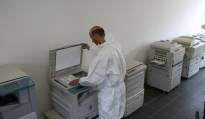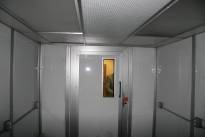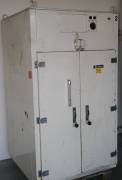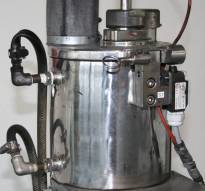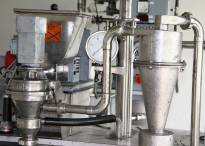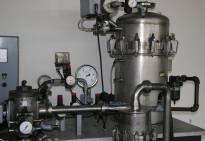INTEGRAL GERMANY
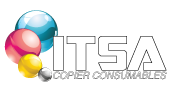
INTEGRAL TONER – MANUFACTURING TOUR
ABOUT INTEGRAL
“The Toner for Better Images”
INTEGRAL’s corporate slogan “The Toner for Better Images,” says what it means, positioning the company as a manufacturer, that has built a reputation on the quality and performance of products, customers can trust.
The premium brand strategy of INTEGRAL toner is largely vested in a focus on quality and consistency as key factors of customer satisfaction.
At INTEGRAL, we focus on what we can do best and what the name stands for developing, producing, and distributing premium copier and printer toners. This is why INTEGRAL pursues an uncompromising premium brand strategy.
Founded in 1966, INTEGRAL has become one of the world’s largest independent manufacturers of toner for copiers and laser printers.
Today INTEGRAL serves thousands of customers on all continents with an extensive range of imaging consumables.
INTEGRAL operates state-of-the-art manufacturing facilities in Germany, Ireland, and France. At our Research & Development Laboratory – research and quality control personnel ensure that imaging materials from INTEGRAL always fulfill the most stringent requirements of our demanding customers.
At INTEGRAL we developed and manufactured our first toner in 1973. Since this time, significant investments have been made by INTEGRAL into some of the most modern and advanced manufacturing facilities, found in the industry.
RAW MATRIALS
QUALITY STARTS WITH THE RAW MATERIALS
Integral Toners are made up of polymers, magnetites (in case of magnetic mono-component toners), carbon black (in case of dual-component toners), wax, charge control agents (CCA), silica, and a number of other proprietary additives. The performance of a toner significantly depends on the quality of raw materials used, the type and set-up of the manufacturing equipment, formulation, and quality control.
As part of the corporate philosophy, INTEGRAL ensures only high-quality specialized raw materials are used for the production of the toners. An essential task of the work at the Research and Development laboratory is the rigorous control of raw materials used in the production process.
QUALITY AND RELIABILITY COME FIRST
Throughout the manufacturing process, INTEGRAL toners are subject to strict procedures. Fully automated and computer-controlled toner manufacturing lines guarantee consistent quality from automated raw material dispensing to the final product. All manufacturing parameters are recorded online continuously.
The comprehensive quality control system built into every step of production ensures that only high-quality products leave INTEGRAL.
State-of-the-art laboratory facilities support the rigorous quality control system. The most important advantage of this for the customer is outstanding quality and performance. Outstanding quality means toner of consistent performance and composition every time. Every new product is tested in extensive field tests under various environmental and machine conditions in addition to long-run in-house testing. Every production lot shipped out is subject to quality control analysis at the research and development laboratory in addition to relevant copy and print testing.
For more information please take our research & laboratory tour.
RESEARCH AND DEVELOPMENT
QUEST FOR LEADERSHIP
With significant investment in Research & Development, INTEGRAL ensures that all products released to the market meet the highest quality and performance standards. Qualified research staff are engaged in the development of new toner products with optimized performance for specific copier and printer systems.
INTEGRAL maintains a state-of-the-art toner development and research laboratory. The research facility features highly sophisticated equipment used in the analysis and development of mono and dual-component toner formulations as well as for the scale-up and reverse engineering of copier and printer toners. Extensive testing of products is carried out at the research facility before being released into the market.
In addition to Research & Development in toner, INTEGRAL co-develops and carries out rigorous testing of copier and printer parts and components in collaboration with some of the world’s leading part manufacturers.
R&D AND QUALITY CONTROL
Vital characteristics and parameters of toners are measured at INTEGRAL’s state-of-the-art research and development facility by highly qualified personnel, engaged in the development and quality control of a wide range of mono and dual-component copier and printer toners. Parameter analysis includes the measurement of important properties such as Tribo charge, flowability, melting point, softening point, particle size distribution, and magnetic properties amongst other important characteristics of the toners. Activities at the research laboratory include new product development, scale-up, raw material control, and final product quality control.
QUALITY CONTROL BY R & D PERSONNEL
ANALYTICAL & LABORATORY EQUIPMENT
Various parameters of toner and raw materials are checked by the use of specific analytical equipment. Various equipment used is shown below:
PARTICLE SIZE DISTRIBUTION
The size and distribution of toner particles is of critical importance to print yield and background levels. Specialized equipment such as the Coulter Multisizer is used to measure the particle size distribution of toners.
The system works by laser diffraction and is connected to a central unit. The sample is either introduced in suspension in a cell or is dispersed in a water-based solution, which circulates in the laser system. This equipment measures the particle size distribution.
TRIBO CHARGE
The q/m Meter is used to measure the toner charge, which is the charge to mass ratio (q/m-value) of two-component developers (toner/carrier mixture). It is used in the development of new toners as well as in quality control.
GLASS TRANSITION TEMPERATURE AND MELTING POINT
This equipment measures the thermal transition of a material. In toner it determines the glass transition temperature (Tg) and the melting point (Tf) or (Tm).
MELT FLOW INDEX / EXTRUSION PLASTOMETER
This equipment measures the melt flow index (MFI) of toner powder. It is an indirect measurement of the viscosity of a product at a determined temperature. The more viscous the material the lower the MFI.
IR SPECTROMETER ANALYSIS
As an integrated part of R & D, target toner compositions are analyzed by means of IR spectrometer analysis.
MAGNETIC PROPERTIES
Magnetic properties of mono-component toners and ferrite raw materials are measured.
DIALECTRIC CONSTANT DISSIPATION FACTOR
The LCR meter measures the electrical properties of a toner. Through this measurement, it is possible to determine the dialectric constant and the dissipation factor. Such measurements provide an indication of the degree of dispersion of the different constituents of a toner.
FLOWABILITY
Sieve towers are used to measure the flowability of toners. A given toner is passed through a number of consecutive sieves in the tower. The flowability of a toner is determined by measuring the passing time and quantity.
COPY AND PRINT IMAGE QUALITY TESTING
Before being released to the market all INTEGRAL toners are extensively tested in the intended copier or printer systems over extended periods. After having successfully passed these tests under various environmental and machine conditions, each product is subject to a prolonged field test on a broader base. The product is only launched after having successfully passed the field test.
COPIER AND PRINTER TEST LABORATORY
In addition to the parameters being measured on laboratory equipment, print and copy tests are run to determine a toner’s stability and performance as well as the matching of components.
IMAGE QUALITY MEASUREMENTS
DENSITOMETER MEASUREMENT
Densitometers are used to determine the image density of solid areas on print-outs and copies. Such measurements provide an unbiased recording of density-related aspects of copy and print quality.
IMAGE ANALYSIS
ENVIRONMENTAL CHAMBER
Environmental conditions such as temperature and humidity influence the characteristics and print performance of electro-photographic systems and toners.
An environmental chamber simulates varying combinations of environmental conditions while print and copy testing takes place.
Temperature cabinets are used to determine the long-term impact of temperature on toners at a set temperature level.
PILOT PLANT
Before entering full-scale production, new product manufacturing trials are run on pilot plant equipment. Full-scale production takes place after meeting the necessary criteria
PROTECTING THE ENVIRONMENT
At INTEGRAL we are aware of the importance of making the best use of natural resources and of protecting the environment.
Outstanding quality of our products means more than performance and value. It includes an all-encompassing ecological compatibility. We take into account the requirements of health and safety as well as the sparing of resources and the minimization of emissions and waste right from the start when we develop new products or manufacturing processes. INTEGRAL imaging supplies are designed to conserve natural resources and to minimize the use of harmful substances.
Therefore INTEGRAL is committed to environmental matters.
Our production processes are organized in an environmentally conscious manner
- INTEGRAL’s environmental policy encourages the recycling of products where possible as well as the re-use of packaging materials
- INTEGRAL recommends the recycling of laser printer cartridges. This goal is supported with a line of products for laser printer cartridge remanufacturing available from INTEGRAL
- INTEGRAL toners contain low amounts of fines and toner dust. Therefore the use of INTEGRAL toner prevents health hazards
- INTEGRAL toners are manufactured with raw materials, which are unobjectionable in terms of health and environmental safety. Significantly reduced amounts of waste toner are produced during the copy process/print process when using INTEGRAL toners
- Our toners are produced to have a long lasting life cycle and to ensure an optimized life of vital machine components. This goes in line with our environmental policy to save resources.
- At INTEGRAL we are conscious in achieving results in consistence with environmental matters by organizing our operations in a responsible and reasonable way
- INTEGRAL´s environmental policy is to maintain a clean environment and is an excellent opportunity for our customers to increase sales by building customer loyalty to environmentally compatible products.
